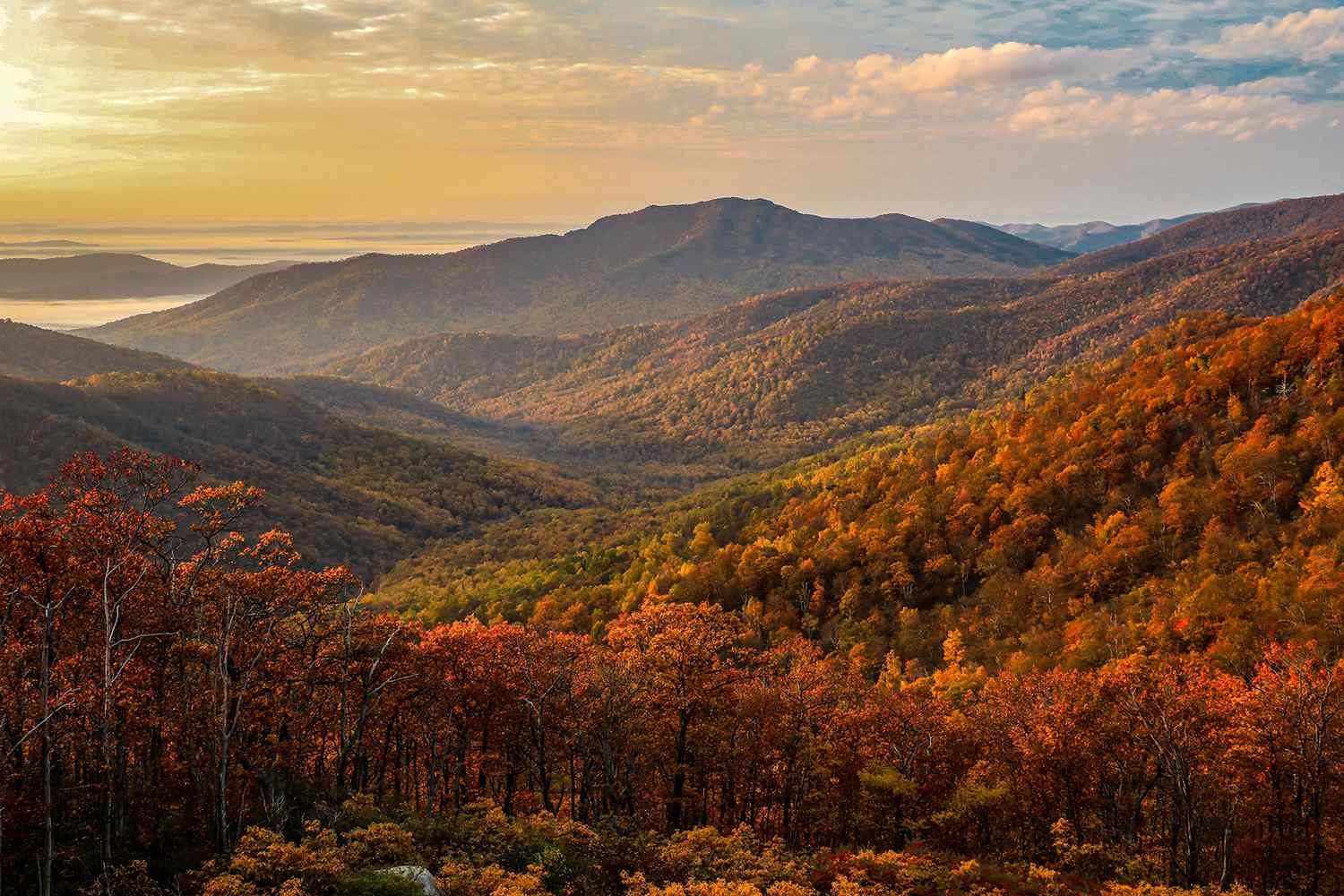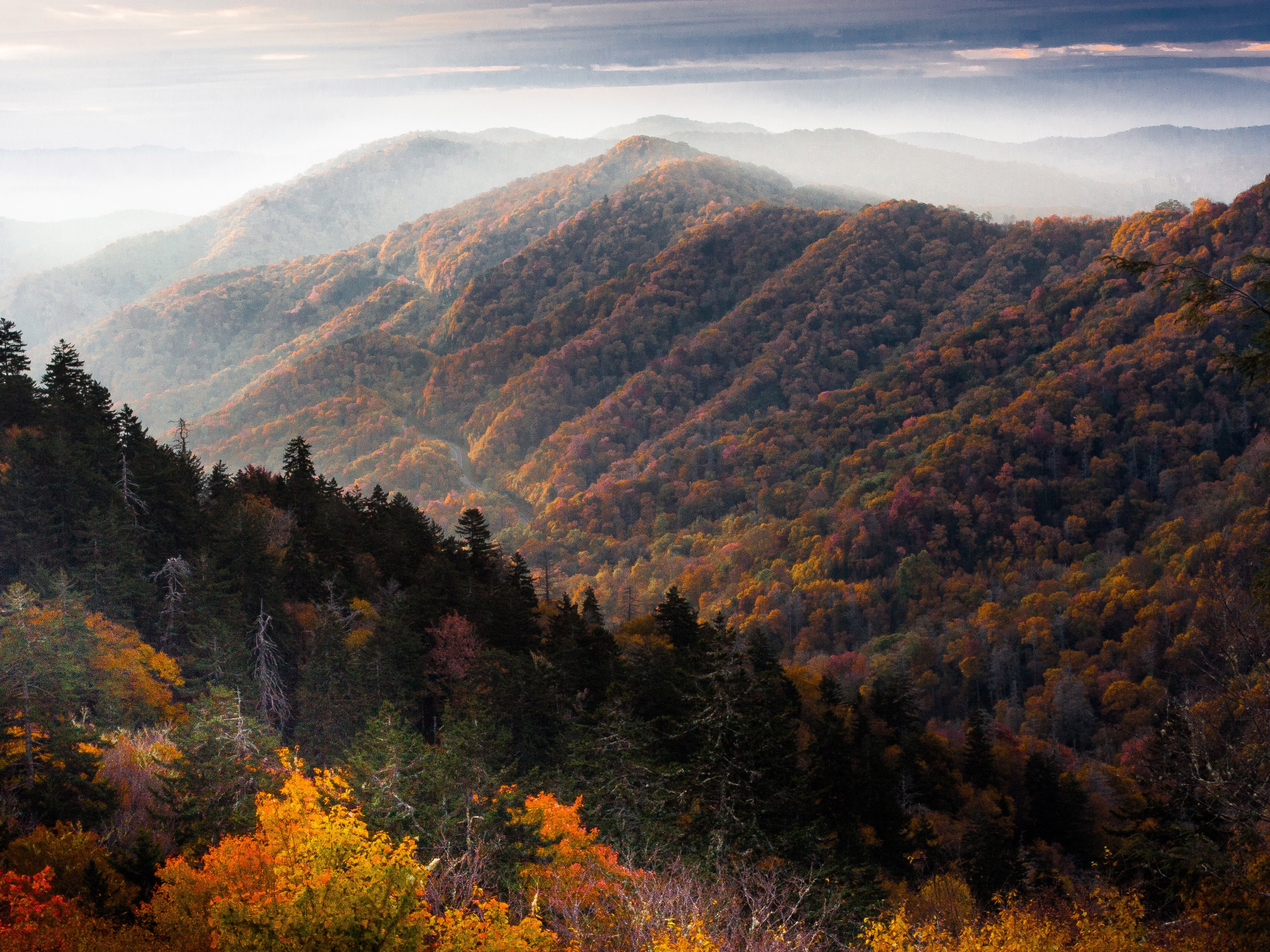https://www.cntraveler.com/story/appalachian-mountains-may-have-once-been-as-tall-as-the-himalayas


Small? The Appalachians today are the resting skeleton of a mountain range so tall and enduring that the mud and sand that washed off them piled miles high and formed the Catskill mountains. The Appalachians were so mighty that their garbage formed mountains
As a geologist who works in the Appalachians... They're cool af.
Nothing is more surreal than being a geologist. Just today I was standing on a dirt road in the middle of farmers field. Looking at the ground is an innocuous little outcrop of boring looking rocks. But those rocks erupted at the bottom of a back arc basin off the coast of Laurentia, was buried by ocean sediment for ages, had an entire ISLAND of rock thrust onto it, and then buried 10s of kilometers deep. The history one rock can tell is amazing.
As a non-geologist living next to Lake Diefenbaker (the reservoir formed by damming the South Saskatchewan River), I also like geological history.
I have a standard reply for when I'm asked why we chose to move to this "treeless wasteland". "I look out at the flat horizon and see how the glaciers planed the earth the way a woodworker flattens a board. I look around me at the river breaks and see how the meltwater from retreating glaciers carved the earth away into shapes that defy imagination." I don't know accurate any of that is, but it fits my mental model of what I was taught in high school.
(What we call the river breaks are twisted and braided networks of coulees, some with sides so steep as to require mountaineering equipment. Most still run with meltwater in the spring.)
I have started daydreaming of a career change to geology. There are just so many unanswered questions and its not like space or physics were these questions are tinyor super far away. You can just walk upto a geologic puzzle and hit it with a hammer.
Ever heard of Geophysics? :) https://en.m.wikipedia.org/wiki/Geophysics
Not sure if my username gave it away or not, but I’m really into applied mathematics. I’m a physics major right now, & while I don’t immediately see myself studying this in grad school, I think that the physics of Volcanism/Plate Tectonics is extremely fascinating. It certainly looks at the history of the world through a very different lens, but I wouldn’t write it off completely!! The physics of our Earth is a beautiful, beautiful thing. :)
Yeah! Geomag, tomography, and dating are all really important tools, and magma dynamics is a whole encyclopedia waiting to be written. So cool!
Geography is just physics slowed down, with a couple of trees stuck in it.
Terry Pratchett
https://www.motionmountain.net/motionmountain-volume5.pdf
Dang I didn't even notice that logical inconsistency until you pointed it out. It should say "The mountains aren't just older than dinosaurs."
Of course you're getting downvoted to hell because everyone either didn't slow down to read it more carefully or can't understand sarcasm.
One thing that will never seem to leave my head is that I had read that the current mountain tops of the Appalachians are actually the original valleys of the mountain range. The mountains were so old and large that the valleys of todays Appalachian’s were the footprint of what was once maybe the largest mountain range earth has seen
What we see now are the ancient roots. Before the continental colision, there was a sea and subduction zone. This gave us sandstones, diorite, and granite... All of which were crushed at incredible pressure and temperature by the continental collision. At the deep roots of the mountains, this transformed the rock into gneiss, marble, and other extremely hard rock. Additionally, the forces were so great that the very bottom melted and became fresh granite.
All of these stones are very hard and resistant to erosion, and are what we see todayas the Appalachians
https://www.brown.edu/news/2016-11-21/appalachians :)) so cool, i love science so much
I love the amount of praise in these comments. My dad is a geologist and used to always gush about the Appalachians when I was growing up
The Rockies and most of the mountain ranges on the west coast were formed from the erosion of the Appalachian mountains!
https://www.uh.edu/nsm/news-events/stories/2018/0723-geologic-history.php
Basically sediment from the Appalachian region was deposited by ancient rivers and wind currents, with this sediment later being uplifted and then eroded to form the Rockies.




